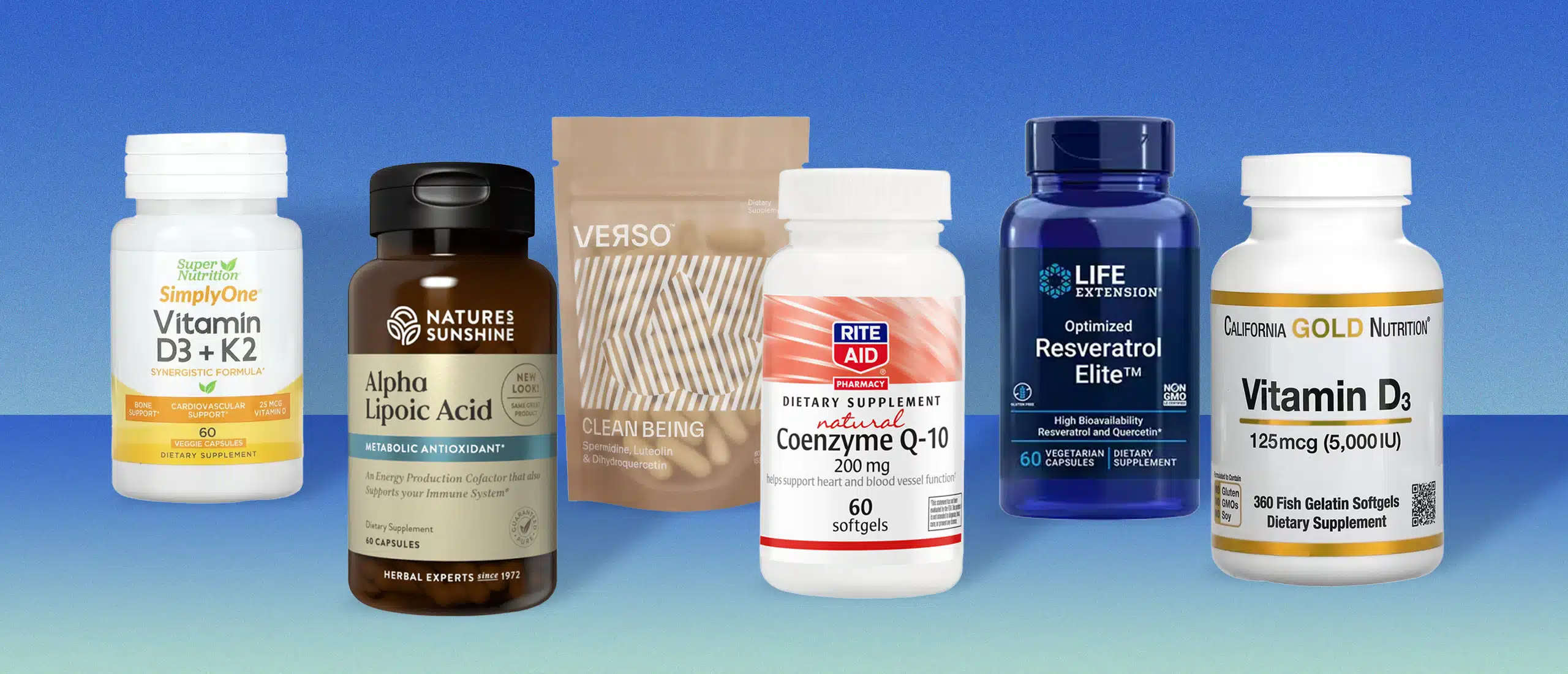Unlocking The Secrets Of Longevity: David Sinclair Berberine And Its Impact On Health
David Sinclair berberine has been making waves in the health and wellness community, especially among those who are interested in longevity and anti-aging. Berberine, a natural compound found in several plants, has been praised for its potential health benefits, including its role in supporting metabolic health, improving insulin sensitivity, and even potentially slowing the aging process. Dr. David Sinclair, a renowned Harvard professor and leading researcher in the field of aging, has been vocal about the potential benefits of berberine, particularly when combined with other compounds like resveratrol. His research has sparked widespread interest, leading many to explore how berberine can be incorporated into their daily routines for better health outcomes.
Dr. Sinclair’s work on aging and longevity has been groundbreaking, and his advocacy for berberine as a key player in this space has only added to the compound’s allure. Berberine works by activating AMPK (adenosine monophosphate-activated protein kinase), a critical enzyme involved in energy regulation within cells. This enzyme plays a pivotal role in maintaining cellular health and has been linked to improved metabolism and reduced inflammation. Sinclair’s research suggests that berberine, when combined with lifestyle changes and other supplements, could be a powerful tool in promoting longevity and overall well-being. This article delves deep into the science behind berberine, its connection to David Sinclair’s research, and how it can be used effectively to support health.
As we explore the potential of berberine, it’s important to note that its popularity is not just due to its standalone benefits but also its synergistic effects when paired with other compounds. Dr. Sinclair’s emphasis on combining berberine with resveratrol highlights the importance of a holistic approach to health. Together, these compounds may amplify each other’s effects, providing a more robust solution for those looking to improve their metabolic health and slow the aging process. In the following sections, we will explore David Sinclair’s background, the science behind berberine, its benefits, and how it can be integrated into a healthy lifestyle for optimal results.
Read also:Ian Browne Unveiling The Life And Legacy Of A Remarkable Figure
Table of Contents
- Who is David Sinclair? A Brief Biography
- What is Berberine and Why Does It Matter?
- How Does Berberine Work in the Body?
- David Sinclair Berberine: The Science Behind the Hype
- Can Berberine Really Slow Aging? Exploring the Evidence
- How to Use Berberine Effectively for Health Benefits
- Are There Any Side Effects of Using Berberine?
- Frequently Asked Questions About David Sinclair and Berberine
Who is David Sinclair? A Brief Biography
Dr. David Sinclair is a world-renowned geneticist and professor of genetics at Harvard Medical School, where he has dedicated his career to understanding the mechanisms of aging and how to slow or reverse its effects. Born in Australia, Sinclair’s journey into the field of longevity research began during his studies at the University of New South Wales, where he developed a keen interest in the molecular biology of aging. Over the years, he has become a leading figure in the scientific community, publishing groundbreaking research on the role of sirtuins, NAD+, and other compounds in promoting cellular health and extending lifespan.
Sinclair’s work has earned him numerous accolades, including being named one of Time Magazine’s “100 Most Influential People in the World.” He is also the author of the best-selling book *Lifespan: Why We Age—and Why We Don’t Have To*, which explores the science of aging and offers practical advice for extending healthy lifespans. His advocacy for lifestyle changes, dietary supplements, and cutting-edge research has made him a trusted voice in the health and wellness community.
Below is a table summarizing key personal details and biographical data about Dr. David Sinclair:
| Full Name | David Andrew Sinclair |
|---|---|
| Date of Birth | June 26, 1969 |
| Place of Birth | Sydney, Australia |
| Education | University of New South Wales, Harvard University |
| Profession | Geneticist, Professor, Author |
| Notable Achievements | Research on sirtuins, NAD+, and anti-aging compounds; Author of *Lifespan* |
What is Berberine and Why Does It Matter?
Berberine is a bioactive compound extracted from several plants, including barberry, goldenseal, and Oregon grape. It has been used in traditional Chinese and Ayurvedic medicine for centuries to treat a variety of ailments, such as infections, inflammation, and digestive issues. However, its modern resurgence is largely due to its potential role in supporting metabolic health and combating age-related diseases. Berberine works by activating AMPK, an enzyme that plays a crucial role in regulating energy metabolism and maintaining cellular health.
The significance of berberine in the context of longevity research cannot be overstated. Dr. David Sinclair has highlighted its ability to mimic the effects of calorie restriction, a well-known method for extending lifespan in various organisms. By activating AMPK, berberine helps improve insulin sensitivity, reduce blood sugar levels, and lower inflammation—all of which are critical factors in maintaining health as we age. Its potential to enhance mitochondrial function and protect against oxidative stress further underscores its importance in the field of anti-aging.
Moreover, berberine’s accessibility and affordability make it an attractive option for those seeking natural ways to support their health. Unlike prescription medications, berberine is available as a dietary supplement and is generally well-tolerated when used responsibly. As research continues to uncover its mechanisms and benefits, berberine is emerging as a cornerstone in the pursuit of longevity and vitality.
Read also:Exploring Daphne Broke Amateurs A Comprehensive Guide To Their Journey And Impact
How Does Berberine Work in the Body?
Berberine’s mechanism of action is multifaceted, making it a powerful compound for improving health at the cellular level. One of its primary functions is the activation of AMPK, which serves as a metabolic master switch. When AMPK is activated, it enhances glucose uptake in cells, reduces fat storage, and boosts energy production. This process not only supports metabolic health but also helps combat conditions like type 2 diabetes and obesity, which are closely linked to aging.
In addition to its effects on AMPK, berberine influences other pathways that contribute to its health benefits. For example, it has been shown to modulate the gut microbiome, promoting a healthier balance of beneficial bacteria. This can lead to improved digestion, reduced inflammation, and even enhanced mental health. Berberine also exhibits antioxidant properties, protecting cells from damage caused by free radicals and reducing the risk of chronic diseases.
Furthermore, berberine’s ability to regulate gene expression through pathways like mTOR and sirtuins aligns with Dr. Sinclair’s research on aging. By influencing these pathways, berberine may help delay the onset of age-related diseases and promote a longer, healthier life. Its synergistic effects with other compounds, such as resveratrol, further amplify its potential as a longevity-enhancing supplement.
David Sinclair Berberine: The Science Behind the Hype
Dr. David Sinclair’s advocacy for berberine is rooted in its ability to address key hallmarks of aging. His research has shown that berberine, when combined with resveratrol, can enhance the activity of sirtuins—proteins that play a critical role in cellular repair and longevity. This combination has been shown to mimic the effects of calorie restriction, a strategy that has consistently demonstrated lifespan-extending benefits in animal studies.
Sinclair’s work also highlights berberine’s potential to boost NAD+ levels, a coenzyme that declines with age and is essential for cellular energy production and DNA repair. By supporting NAD+ levels, berberine may help maintain mitochondrial function and reduce the accumulation of cellular damage that contributes to aging. This aligns with Sinclair’s broader research on the importance of NAD+ in promoting healthspan and lifespan.
The growing body of evidence supporting berberine’s benefits has made it a staple in Sinclair’s recommended regimen for longevity. He often emphasizes the importance of combining berberine with other lifestyle interventions, such as exercise, a nutrient-rich diet, and adequate sleep, to maximize its effects. This integrative approach underscores the potential of berberine as a cornerstone in the pursuit of a longer, healthier life.
Can Berberine Really Slow Aging? Exploring the Evidence
The question of whether berberine can slow aging is one that has intrigued scientists and health enthusiasts alike. While no compound can completely halt the aging process, berberine shows promise in addressing some of the key drivers of aging, such as mitochondrial dysfunction, oxidative stress, and chronic inflammation. Studies have demonstrated that berberine can improve markers of aging in both animal models and human trials, making it a compelling candidate for further research.
For instance, research has shown that berberine can reduce markers of oxidative stress and inflammation, both of which are major contributors to age-related diseases. Its ability to activate AMPK and boost NAD+ levels also supports cellular repair and energy production, which are critical for maintaining health as we age. Additionally, berberine’s effects on the gut microbiome may play a role in reducing systemic inflammation, further supporting its anti-aging potential.
While more research is needed to fully understand berberine’s long-term effects on aging, the existing evidence is promising. Dr. Sinclair’s work and other studies suggest that berberine, when used as part of a comprehensive health strategy, may help slow the aging process and improve overall well-being.
How to Use Berberine Effectively for Health Benefits
Using berberine effectively requires understanding its optimal dosage, timing, and potential interactions with other supplements or medications. Most studies recommend a daily dosage of 500–1,500 mg, divided into two or three doses throughout the day. This ensures consistent activation of AMPK and maximizes its health benefits. It’s also advisable to take berberine with meals, as it can help regulate blood sugar levels and improve nutrient absorption.
To enhance its effects, many experts, including Dr. Sinclair, recommend combining berberine with resveratrol. This combination has been shown to amplify each other’s benefits, particularly in supporting mitochondrial function and reducing inflammation. Additionally, incorporating lifestyle changes such as regular exercise, a balanced diet, and adequate sleep can further amplify berberine’s effects.
It’s important to consult with a healthcare provider before starting berberine, especially if you are taking medications for diabetes, blood pressure, or other conditions. This ensures safe and effective use, minimizing the risk of potential side effects or interactions.
Are There Any Side Effects of Using Berberine?
While berberine is generally safe for most people, it’s important to be aware of potential side effects and contraindications. Common side effects include gastrointestinal discomfort, such as diarrhea, constipation, or stomach cramps. These symptoms are usually mild and can often be mitigated by adjusting the dosage or taking berberine with meals.
In rare cases, berberine may interact with medications that affect blood sugar levels, blood pressure, or liver function. For example, it may enhance the effects of diabetes medications, leading to hypoglycemia. Pregnant or breastfeeding women should avoid berberine, as its safety in these populations has not been well-studied.
To minimize risks, it’s essential to start with a low dose and gradually increase it while monitoring for any adverse effects. Consulting with a healthcare provider is always recommended, particularly for individuals with pre-existing health conditions or those taking multiple medications.
Frequently Asked Questions About David Sinclair and Berberine
What is the best way to combine berberine with resveratrol?
Dr. Sinclair recommends taking berberine and resveratrol together, as their synergistic effects can enhance mitochondrial function and reduce inflammation. A typical regimen might include 500 mg of berberine and 100–250 mg of resveratrol, taken twice daily with meals.
How long does it take to see results from berberine?
Results from berberine can vary depending
Exploring Ladyboy Massage Dubai: A Unique Wellness Experience
What Makes The Celebrity Boot Club A Game-Changer For Fitness Enthusiasts?
How To Apply For A Rush Card: A Complete Guide To Fast And Convenient Financial Solutions

DAVID SINCLAIR BRAND MINDS

Everything in David Sinclair’s Supplement Stack